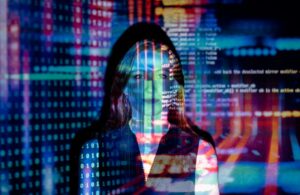The last two weeks have seen some Australians going into a real buying frenzy of essential items from toilet paper, canned food to pasta. There’s even reports of employees going to the lengths of stealing toilet paper supplies. What has the world come to? There is a real ‘Armageddon’ feel about this.
A Canadian doctor has written an open letter on Facebook, revealing his biggest fear about the worldwide coronavirus outbreak. Dr Abdu Sharkawy, an infectious diseases specialist, took to Facebook to share what he considers the most dangerous aspect of the virus. He said he’s not afraid of COVID-19. “What I am scared about is the loss of reason and wave of fear that has induced the masses of society into a spellbinding spiral of panic, stockpiling obscene quantities of anything that could fill a bomb shelter adequately in a post-apocalyptic world,” he wrote. “I am scared of the N95 masks that are stolen from hospitals and urgent care clinics where they are actually needed for front line healthcare providers and instead are being donned in airports, malls, and coffee lounges, perpetuating even more fear and suspicion of others. “Instead of reason, rationality, open-mindedness and altruism, we are telling them to panic, be fearful, suspicious, reactionary and self-interested.”
What can HR do? Drive facts, not fear
Business owners and HR can take note to spread a message of patience, not panic with our people. Employers should remind employees to exercise simple hygiene measures. The best way to protect yourself from COVID-19 is the same way you would protect yourself from catching flu or other respiratory illness:
- wash your hands for at least 20 seconds with soap and water, or use an alcohol-based sanitiser with at least 60% alcohol
- cover your sneeze or cough with your elbow or with tissue
- avoid close contact with people who are ill
- avoid touching your eyes, nose and mouth
- stay home if you are sick
Health Minister Brad Hazzard says, “Simple hygiene measures like regular hand washing, sneezing into your elbow and, most importantly, staying home when sick, will not only help ease ED presentations for flu but also support existing COVID-19 pandemic plans.” “Businesses also need to review their continuity plans now. Look at strategies for keeping workers safe with simple measures such as alcohol hand rub in the workplace, stress the importance of staying home when sick, and use technologies that allow people to work from home where necessary. “We also ask everyone to please see your GP for minor illnesses and injuries where possible, to ensure we keep our EDs for emergencies only, particularly as we head into the busy flu season.” The NSW Health has published a comprehensive FAQ guide on what the disease is, how to protect yourself, home isolation and more about social distancing. The World Health Organisation publishes daily updates on COVID-19 which you can view here.
You can request employees to work from home or to take time off
Employers can request employees to work from home, if possible, or not work at all during the risk period if the employee is deemed at risk of infection from Coronavirus. Employees can also request to work from home if they are worried about being exposed to the virus. Before doing so, it might be worthwhile for the employee to chat with their doctor or a workplace health and safety representative to determine how “at risk” they are of contracting COVID-19.
Directing employees not to attend work
If you have a reasonable suspicion an employee may be exhibiting signs of Coronavirus then you may direct an employee to leave work or not attend the workplace and attend a medical professional for assessment. However, in this event, the employer should pay for the employee to see the doctor as well as for their time away from the workplace if the employee does not agree to take paid leave. The employer should be responsible for paying the employee until such time as medical confirmation is obtained that the employee is unfit for work. Once an employee is certified as unfit, then the employee can be required to take a form of leave (whether paid or unpaid). People who have been in contact with confirmed novel Coronavirus cases must be isolated in their home for 14-days after exposure. If an employee informs you they may have contracted the Coronavirus, or have been exposed to someone who has the Coronavirus, they may use the following accrued entitlements:
- Personal/carer’s (sick) leave: This leave is available for use where an employee is not fit for work. Employers can ask for a medical certificate certifying an employee’s absence from work due to illness or injury if required by the employer
- Employees will be unfit for work in circumstances where they should be isolated from others in accordance with the Australian government advice outlined above
- Annual leave/long service leave: This can be used by employees who do not have enough personal/carer’s leave, where they have accrued the relevant entitlement. Employees requesting to take this form of leave should be permitted to do so, unless refusing to grant the leave is reasonable in the circumstances
This article was written by Catherine Ngo and first published on hradvance.com.au.


